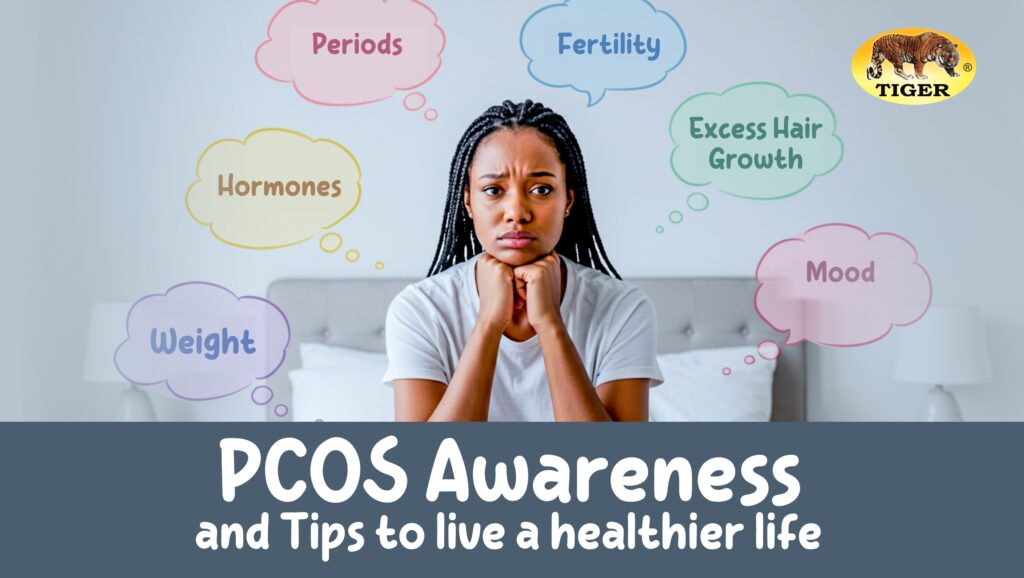Every year on September 1st, the world marks PCOS Awareness Day, a day dedicated to shining light on a condition that affects millions of women. Many women in Nigeria and around the world are living with a health condition called PCOS (Polycystic Ovary Syndrome). Sadly, a lot of people don’t fully understand it, and many women silently struggle with its effects on their bodies, emotions, and daily lives.
This blog breaks it down in a way that’s easy to understand and relate to.
What Exactly is PCOS?
PCOS is a condition caused by hormonal imbalance in women. Simply put, the body produces higher levels of certain hormones (like androgens) that disrupt normal functions. This can affect the menstrual cycle, fertility, weight, and even appearance.
Common Signs of PCOS
Every woman’s experience with PCOS is different, but from reports, some common signs include:
- Irregular or missed periods
- Sudden weight gain, especially around the belly
- Acne and oily skin that refuse to clear
- Hair growth in unusual places, like the chin or chest
- Difficulty getting pregnant
In Nigeria, some women may brush these signs aside, thinking it’s “normal body changes.” But it’s important to take them seriously and seek medical advice on time.
The Emotional Side of PCOS
PCOS is not just about the body; it affects the mind too.
Imagine constantly being asked by relatives: “When will you give us children?” without people understanding your struggle. Or dealing with changes in your body that make you lose confidence.
These silent battles can lead to sadness, frustration, or even depression. This is why compassion and awareness are so important.
Managing PCOS
Although PCOS has no permanent cure yet, it can be managed with the right lifestyle and medical support.
Here are a few helpful tips:
- Healthy eating: Nigerian foods like beans, vegetables, fish, and unripe plantain are great for managing weight. Some nutritionists also claim that controlled fasting has been seen to manage PCOS. Please check with your doctor for guidance.
- Exercise: Simple activities like skipping, walking, or home workouts help balance hormones. An average of 30 minutes of workout for 4 days is a good way to start. However, do not neglect adequate rest in between.
- Medical care: Visit an OB/GYN for proper diagnosis, treatment and advice.
- Support system: Find people who understand and encourage you, whether family, friends, or support groups.
You Are Not Alone
If you’re living with PCOS, remember this: you are not alone. Many women are on the same journey, and your struggles are valid. PCOS does not define your worth, your beauty, or your future.
With proper care and support, women with PCOS can still live full, healthy, and happy lives.
Do you know someone who might be dealing with PCOS? Share this blog with them. A little awareness and kindness can make a huge difference.


